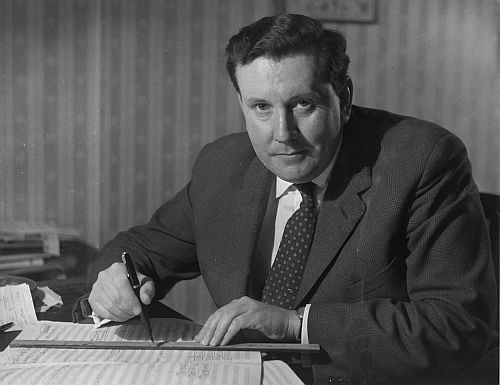Musical commentary by Mark Sebastian Jordan
I could be wrong.

Perhaps the late English composer Sir Malcolm Arnold will never become a roaring mainstream success. After all, one has to go quite a ways away from normal to meet this stealthy populist’s real meanings. But I’ll say this: In forty years of listening to classical music, I’ve called numerous trends before they hit.
I knew Mahler would become central to the mainstream years before it happened.
I knew Shostakovich would become the new Mahler as realization hit listeners that this was a profound artist saying complex things.
I also predicted that Brahms would slide in the pantheon, as he has. While still a great composer, his recipe for plush, introspective comfort misses the mark in a violent, technologically spasmodic world.
But there is a composer, already passed, who had his nervous finger on the pulse of what was to come in our increasingly dysfunctional world, and it was because he was so dysfunctional himself. His name was Malcolm Arnold. Precocious and staggeringly gifted, Arnold played and wrote music from childhood, and found himself appointed principal trumpet of the London Philharmonic in his early twenties.
At the same time, he was writing music and getting his foot in the door of the world of film. Writing film scores made it possible for Arnold to leave his day job in the orchestra and devote himself to composing. He ended up writing the music for over a hundred films, winning an Oscar for his score to The Bridge on the River Kwai. His extraordinary level of energy allowed Arnold to also compose numerous concert works, ballet scores, band music, and chamber music.

It sounds like the ultimate composing success story. Why wasn’t it?
